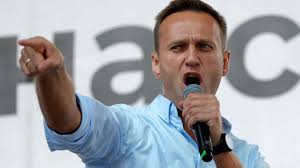
Venezuela’s downward economic spiral
 VLADIMIR PUTIN pointed out that the Russian currency’s recent loss of value had a silver lining. “We earlier sold a product worth $1 and got 32 rubles for it,” he told the TASS news agency. “And now we get 45 rubles for the same product costing $1. Budget revenues have increased and not decreased.” That simple math works for big energy producers like Russia, where government revenues come mostly from sales of oil and gas for dollars. When world energy prices drop, a depreciating currency can allow a government to keep spending at home and cushion the shock.
VLADIMIR PUTIN pointed out that the Russian currency’s recent loss of value had a silver lining. “We earlier sold a product worth $1 and got 32 rubles for it,” he told the TASS news agency. “And now we get 45 rubles for the same product costing $1. Budget revenues have increased and not decreased.” That simple math works for big energy producers like Russia, where government revenues come mostly from sales of oil and gas for dollars. When world energy prices drop, a depreciating currency can allow a government to keep spending at home and cushion the shock.
Not everyone gets it, however. Unfortunately for Venezuelans, Mr. Putin’s lesson is lost on their own leaders, who are continuing to preside over an accelerating — and dangerous — economic collapse in one of the world’s biggest petroleum powers.
The price of Venezuela’s heavy oil dropped below $70 a barrel last week, compared with an average of $98 in 2013. Balancing the government’s budget requires a price of $120 at the current exchange rate, according to the International Monetary Fund. However, rather than allowing its currency to decline like the ruble, the government of Nicolás Maduro has insisted on maintaining a fixed, multiple-tier exchange rate system that vastly undervalues the dollar. How much so? According to Francisco Rodriguez of the Bank of America, the dollar is now worth 1,700 percent more on the black market in Caracas than the price the government charges those lucky enough to obtain it legally.
The result is staggering economic disarray in what was once Latin America’s richest country. Basic goods — cooking oil, rice, coffee, sugar, corn flour and even toilet paper — have become scarce, even as inflation soars above 60 percent. Venezuelans routinely line up for hours outside stores in the desperate attempt to obtain food and other essentials. Rather than embrace Mr. Putin’s logic — also known as Economics 101 — the government has resorted to schemes such as installing fingerprint readers in stores in order to enforce rationing. Meanwhile, regime insiders with access to cheap dollars reap windfall profits.
On state-controlled television, Mr. Maduro flaunts his ignorance, delivering speeches that attribute the shortages to conspiracies by domestic and foreign enemies. Prosecutors are preparing to charge a top opposition leader, Maria Corina Machado, on the absurd allegation that she conspired with the U.S. ambassador to Colombia to assassinate Mr. Maduro.
In a recent report, Mr. Rodriguez euphemistically referred to Mr. Maduro’s administration as a “low-bandwidth government.” He noted that while most analysts agreed it would be a disaster for Venezuela to respond to its problems by defaulting on its foreign debt, the Maduro government cannot “be counted on not to make that mistake.”
Venezuelans, who for more than a decade remained relatively evenly divided between supporters and opponents of the regime of Hugo Chávez, appear to be reacting en masse to the malfeasance. A poll conducted in September by the firm Datanálisis showed that 67 percent have a negative view of the government and more than 80 percent say the country is in a bad situation.
Perhaps the worst news for Venezuelans is that the next election, for parliament, is nearly a year away — and Mr. Maduro’s presidential term does not expire until 2019. Barring a miraculous recovery of oil prices or a dramatic reversal of course by the government, the country’s downward spiral appears destined to continue.
